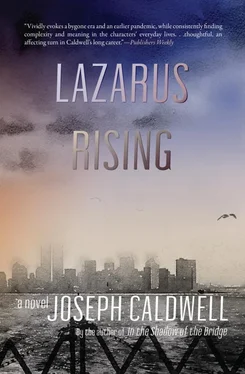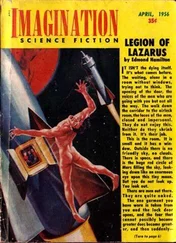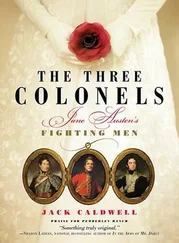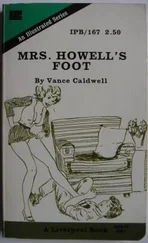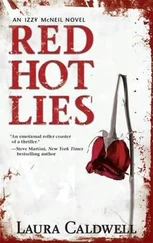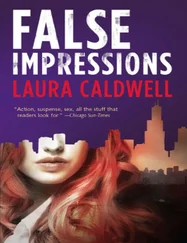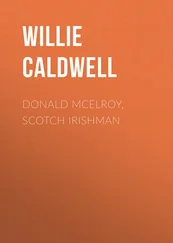“No known explanation—someday it could be known.”
“Perhaps it’s already knowable.”
“More likely it’s not.”
“But you do believe yourself to be cured, don’t you?”
“I accept what Doctor Norstar tells me. I always have.”
“And you accept her inability to account for what’s happened?”
“I have always accepted the doctor’s inability. Yes.”
“You know that Johnny prayed for your cure—”
“Yes. I know.”
“The day he came to the cathedral. After I’d given him Communion, he prayed. That you’d be cured.” The priest reached up and took the icepack from his head and held it with both hands against his thigh. “Johnny said—”
“You want me to take that—the ice. Father? Change it?”
“No. No it’s all right.” He gripped it tighter as if afraid she might take it from him by force. “What I’m saying is this: I would like to present the facts as they stand now to His Eminence—”
“You want to tell him I’m cured—and it’s a miracle.”
“That determination has yet to be made. I myself would make no claim. But I would like to initiate an inquiry—”
“No.”
“You mean you would not cooperate?”
“I would do whatever I could to stop you or his… whatever he is.”
“His Eminence.”
“Yes. That’s the one.”
“The inquiry, of course, could go forward without your participation.”
“Then let it.”
“Why are you so dismissive of God’s mercy?”
“Because maybe it isn’t a mercy.”
“A cure? From an incurable illness? From an epidemic?”
“But is it a mercy? I mean, why me? Why only one of us, why not everybody? All those others, they have the right to ask, ‘Why her and not me? Why her and not my lover, or my husband, or my wife?’ Or they could ask why are Johnny Donegan’s prayers answered and not mine, all those times I said them. Or the one question I keep asking myself over and over again, “‘Why me and not my son?’”
“Your son?”
In an uninflected voice, she said, “He died right after he was born. Of AIDS. I’d infected him in my womb. I killed my son. Why me and not him?”
Quietly the priest said, “I’m sorry. Truly I am. I will pray for him.”
She couldn’t not say it: “That he’ll be cured?”
After a pause, Father Dunphy managed to say, “Does it mean nothing to you that you’ve been given a new life?”
“It means a great deal. Instead of a life of one devouring malignancy, I’ve been given a life of a different but equally devouring malignancy.”
“Oh? I don’t understand.”
“My AIDS has been taken from me and in its place I’ve been given an unrelenting sense of shame. I repeat, ‘If me, why not everybody?’ Doesn’t anybody know how ashamed I am? That I have a shame that gives me no peace? I am in agony, even as I talk to you now. At least there were times when I could laugh at my illness. But this is nothing I can laugh at. It gives me no moment in which it is not ‘Why me and not everybody?’ And allow me to add that Johnny, too, as much as I have loved him, has been taken from me. Our wonderful lovemaking was in defiance of death. Now, it would be without its meaning, and I tried but I can’t do it.”
“But couldn’t you see it all differently? Quite differently?”
“How differently?”
“Couldn’t you be a sign from God that mercy still exists?”
“Me?” Dempsey said scornfully. “ Me . A sign from God? Do you know who I am? The word disbeliever doesn’t even begin to describe it.”
In more forceful tones, Father Dunphy said, “I find that more convincing of what I just said than anything else you could have said. Hear me now. No one— no one —no matter who they are and no matter what they may have done, never— never —are they beyond the reach of God’s mercy. Being who and what you are qualifies you more than you know to be the one chosen for an extraordinary proof of God’s infinite love. Will you at least consider that?”
Dempsey stood up and extended her hand. “The ice is really melting. You should probably give it to me.”
After more than a moment’s pause, he held it out to her. “I assume that is your answer. I assume you prefer that I go.”
She took the ice from him and said, “I thank you for coming, Father. Our conversation has, indeed, been helpful in its own way.”
Without turning around, he said, “I don’t suppose you’ll tell me how?”
“Allow me to help get you safely on the elevator.”
“Thank you.”
“You are most welcome. And I mean that.”
After she had closed the elevator door without mishap, Dempsey went to the kitchen and dumped the soggy compress into the sink. She tugged one corner of the towel, preparing to unzip the plastic bag and empty the water from the melted ice. Instead she reached up to the spice rack and shoved the jars, bottles and tins from one side to the other, as if working an abacus. Nimbly her fingers moved until, on the third shelf, she found what she was looking for, the oregano, a jar the size of a flashlight battery. The blue pills were inside. She and Winnie had agreed that she would not take them until she had arrived at a torment that was no longer tolerable. Father Dunphy’s visit had guided her to that moment.
She unscrewed the top, looked inside and shook the jar lightly. Two small blue pills surfaced. She shook the jar again. One pill disappeared; two more came to the top. She picked one out and turned her hand at the wrist to see the pill from several sides. It was a dusty blue, the size of a lentil. A few shreds of oregano stuck to the surface. She rolled the pill between her fingers until all the oregano had dropped away. For one more moment she looked at it, then she carefully placed it back inside, letting it lie gently on the oregano like the egg of a miniature robin in a nest of dried and broken leaves. She shook the jar. The pill was still poking up through the oregano. She shook the jar again. The pill was no longer visible. She screwed the cap back on, put the jar on the shelf, and rubbed the oregano dust from her fingers into the air above the sink.
Dempsey took a good long look at the painting she had finished. Lazarus indeed was magnificently risen from the dead. But Dempsey being Dempsey, she was able to find several places where more work was needed. There was that curl of hair above the left ear that wasn’t right. There was no spring to it. It seemed to have been hardened by hair spray into splinters of cedar. Slowly she reworked it, giving it light and dark. A soft shadowing that finally let it touch gently into the ear. She checked to see if this should affect the lighting in the dark bowl of the ear itself or the line of hair, disheveled and spiky, that poked at the ear from the side. She had momentary doubts, then decided no change was needed. Now at last it was time to clean the brushes.
As if picking up twigs for a bonfire, she collected her brushes, gathering them into her fist until she couldn’t hold any more. She slid them into the wide-mouthed can of turpentine and pressed down lightly, giving the bristles a good quick drink. She rounded up the rest: one on the floor under the table, another hidden under a putty knife she sometimes used to scrape down the smeared paint to make just the right surface for the next coat, and the last to be found was on the stool near the canvas—the quarter-inch brush, completely worn away, that she’d used as a stick to scratch lines into the colors already layered onto the canvas. It occurred to her that a new three-quarter-inch brush would soon be needed, then was almost amused by such a needless concern.
Читать дальше
